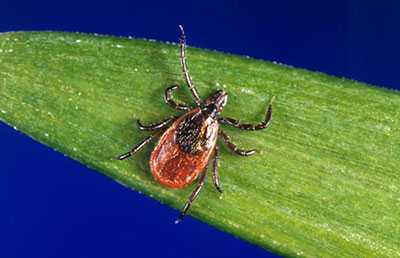 Powassan (POW) virus is transmitted to humans by infected ticks. Approximately 75 cases of POW virus disease were reported in the United States over the past 10 years. Most cases have occurred in the Northeast and Great Lakes region. Signs and symptoms of infection can include fever, headache, vomiting, weakness, confusion, seizures, and memory loss. Long-term neurologic problems may occur. There is no specific treatment, but people with severe POW virus illnesses often need to be hospitalized to receive respiratory support, intravenous fluids, or medications to reduce swelling in the brain.
Powassan (POW) virus is transmitted to humans by infected ticks. Approximately 75 cases of POW virus disease were reported in the United States over the past 10 years. Most cases have occurred in the Northeast and Great Lakes region. Signs and symptoms of infection can include fever, headache, vomiting, weakness, confusion, seizures, and memory loss. Long-term neurologic problems may occur. There is no specific treatment, but people with severe POW virus illnesses often need to be hospitalized to receive respiratory support, intravenous fluids, or medications to reduce swelling in the brain.
You can reduce your risk of being infected with POW virus by using tick repellents, wearing long sleeves and pants, avoiding bushy and wooded areas, and doing thorough tick checks after spending time outdoors. If you think you or a family member may have POW virus disease, it is important to consult your healthcare provider.
General Tick Information
- Page last reviewed: February 14, 2017
- Page last updated: February 14, 2017
- Content source:


 ShareCompartir
ShareCompartir



